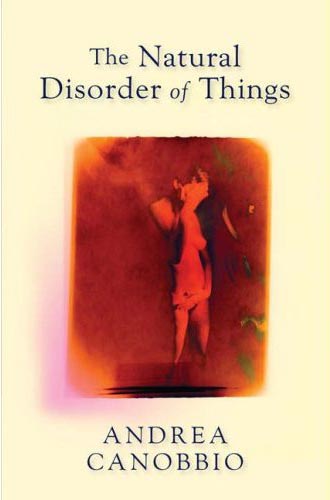
EURO CRIME
Reviews

Canobbio, Andrea - 'The Natural Disorder of Things' (translated by Abigail Asher)
Hardback: 340 pages (Jan. 2008) Publisher: Quercus ISBN: 1847242502
In Andrea Canobbio's first novel to be translated into English Claudio Fratta, a garden designer, sees a man killed by a hit and run driver in the parking lot of a supermarket. It appears to be a deliberate act, and Claudio follows the driver, who is the beautiful and seductive Elisabetta Renal. She crashes her car and Claudio rescues her and takes her to the hospital.
Months later Claudio is commissioned to design and build a garden for Elisabetta and her elderly scholarly husband Alberto Rossi, who is confined to a wheelchair. Neither of them mentions the incident in the car park or the subsequent crash.
Claudio is a solitary introspective who takes care of his nephews, the children of his serially unfaithful brother Carlo at weekends, while grieving for his dead father and the loss of Fabio, his drug addicted brother.
He has become infatuated with the mysterious Elisabetta, who spends nights driving around and meeting up with the menacing Mosca, and Giletti "his witness, his biographer". Claudio begins to believe that Mosca was involved with Conti, the man who bankrupted his father's furniture factory, and he dreams of revenge.
Eventually Elisabetta ends up in Claudio's bed while he realises that Alberto Rossi is involved in the sort of politics that his liberal brother Carlo would totally disapprove of.
With the greatest respect this was a very difficult book to read, actually in parts it is almost totally unreadable. It is described on the flap as a "literary thriller" and a "beautiful, haunting, gorgeously, evocative novel" but I would humbly disagree and found the style with its constant interruptions to the flow of the text and story very annoying, while the plot is flimsy and perhaps was more suited to a short story than a 340 page novel.
Obviously I am totally out of my depth with a book that has a sentence containing one hundred and ninety three words. I counted them! This is superfluous padding made into an art form. On one page the author opens and closes brackets five times and to say this makes this passage difficult to read is an understatement.
The Independent recently interviewed Andrea Canobbio and stated that "he has built a reputation for beautifully written, scrupulously crafted stories that frame sometimes visceral content in cerebral forms."
I think that means he writes stuff I can't understand with lots of parenthesis, colons, semi-colons, and very long sentences. Some of his sentences seem longer than a Leonardo Sciascia short story; in fact many seem longer than a Massimo Carlotto novel.
It does not help that Claudio, Elisabetta, and most of the minor characters, with the exception of Witold, Claudio's Polish assistant, are all complete bores living selfish meaningless lives.
Chris Moss of the Washington post called this novel a "satire and a philosophical exercise in self enquiry." I felt it was an exercise in self indulgent, pretentious rambling to which the intelligentsia will probably award a crop of literary prizes without actually reading it.
Norman Price, England
February 2008